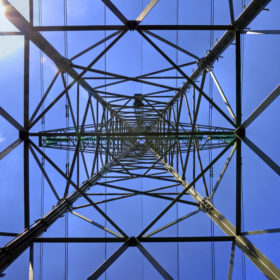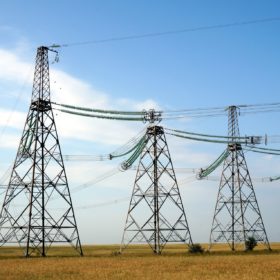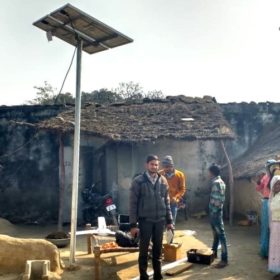Delhi High Court orders tax review for solar projects
The court appears to have sided with solar developers who are complaining about a revision made late last year which ensured only 70% of the costs associated with PV project establishment would qualify for a discounted rate of goods and services tax.
New factory-focused solar tender reportedly in the offing
With last year’s embarrassing manufacturing-linked capacity tender limping along, it has been reported that the Indian government – whichever form it takes after the current elections – is considering a new tender to incentivize the establishment of a domestic solar industry.
Power-surplus Karnataka state says no to new solar
India’s leading solar region has been forced to apply the brakes to new solar with its power distribution companies having fulfilled their renewable purchase obligations for the next two years. Projects driven by federal agencies will continue, however.
Kolkata utility seeks 200 MW of solar power to meet RPO
The power company needs to secure PV energy for 11-18 hours per day this month and in September in order to meet its renewable purchase obligation. Solar energy from outside the state of West Bengal will be considered.
Gujarat re-tenders 700 MW of solar but response is lukewarm
Reduction in solar park charges was not enough to attract developers in the same numbers that flocked to a separate 500 MW exercise two months earlier. The Raghanesda Solar Park continues to be a headache after a previous attempt was cancelled because the tariffs were deemed too costly.
Interview: Damian Miller, CEO of rooftop solar supplier Orb Energy
Founded in 2006, Bengaluru-based Orb is a rooftop solar provider that manufactures panels and provides finance for SMEs through a collateral-free loan that matches the payback period for its solar systems. Orb has sold more than 160,000 units in India, with cumulative installations of around 65 MW of PV rooftop capacity.
Maldives — a sinking paradise with solar ambitions
In September 1988, the United Nations spelt doom for the Maldives when the organization predicted that a gradual rise in average sea levels would leave the Indian Ocean nation of 1,196 small islands completely covered by water within 30 years.
Off-grid villages in Uttar Pradesh go 100% solar
Lack of road access meant PV panels had to be brought in by boat to be installed on the roof of every home under the government’s Saubhagya rural electrification scheme.
pv magazine speaks to Puneet Singh Jaggi, co-founder and director of Prescinto Technologies
Founded in 2016, Prescinto Technologies is an industrial internet of things solution provider to the solar sector. After two years, Prescinto has found a footing in 13 countries across 4 GW of solar plant capacity. Backed by Gensol Group’s engineering experience across 20 GWs of renewable projects, Prescinto is able to transform that knowledge into code and empowers plants ‘onboarded’ on its platform.
India urgently requires policy on PV waste management: Bridge to India
The nation is trailing behind peers such as the EU when it comes to policy guidelines for materials and recycling and the lack of a viable business case for reusing materials doesn’t help matters.















